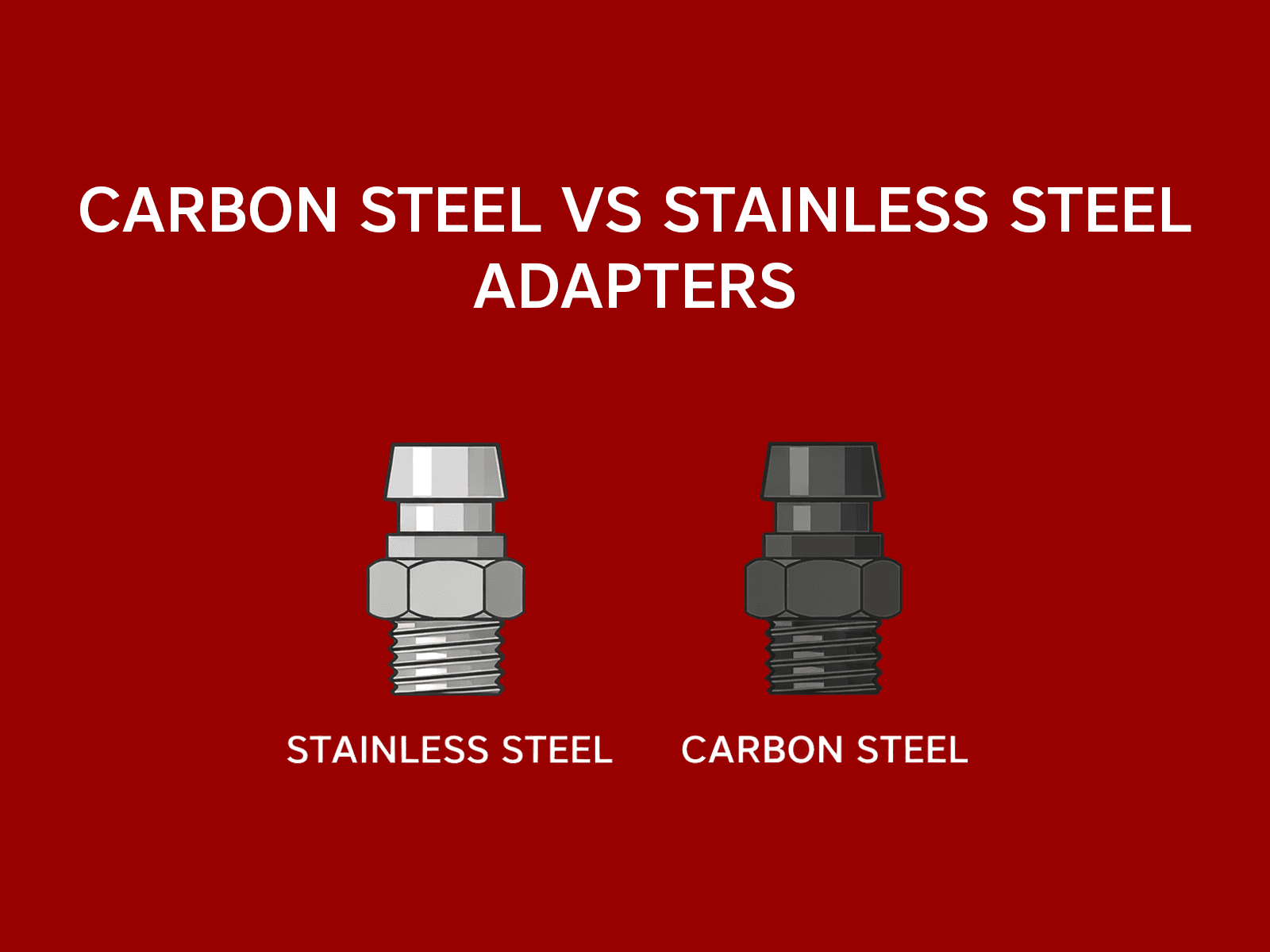Carbon Steel vs Stainless Steel Adapters

The key trade-off between carbon steel and stainless steel adapters comes down to longevity and corrosion resistance. Carbon steel adapters work well in controlled environments, but when exposed to moisture, chemicals, or salt, they begin to corrode quickly. Stainless steel fittings, especially 316 stainless, are engineered to withstand harsh conditions far longer. In many applications, a stainless steel adapter can last up to ten times longer than a carbon steel option, making it the preferred choice for environments that demand durability and consistent performance.
Corrosion is the biggest factor that shortens the life of carbon steel adapters. Water, humidity, and especially saltwater accelerate oxidation, leading to rust, pitting, and weakened threads. This not only shortens the lifespan of the fitting but can also compromise system integrity and safety. Stainless steel, by comparison, offers superior resistance thanks to its chromium content and passive protective layer, maintaining structural integrity even in marine, chemical, or high-moisture environments.
Titan Fittings provides a full range of high-performance stainless steel adapters built for long-term reliability. With nationwide availability, same-day shipping, and industry-trusted 316 stainless components, Titan ensures your system stays protected no matter the environment. Whether you need long-lasting durability, reliable corrosion resistance, or a proven solution for harsh conditions, Titan Fittings delivers. Shop now and upgrade your system with stainless steel components built to last.